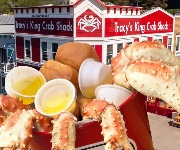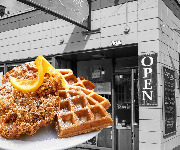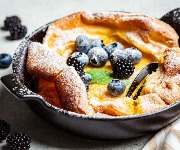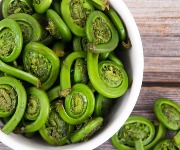The incredible history of Martini
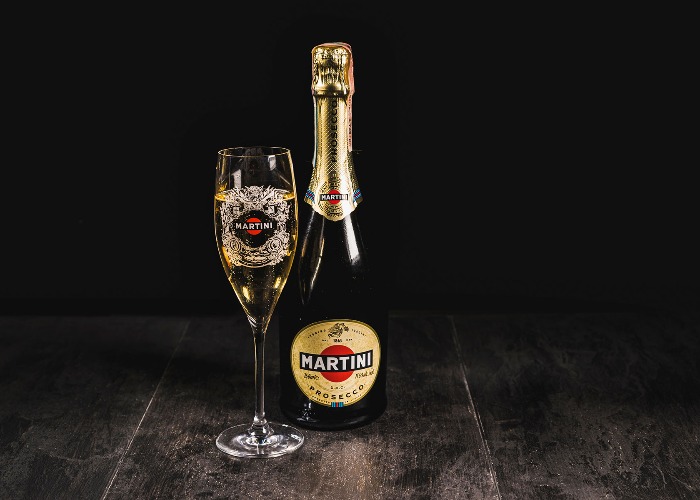
Discover all about Martini's incredible 150-year history, its enduring popularity, variety of products and recipes for tasty Martini-based cocktails with our guide.
Martini is the famed Italian drinks brand, producer of vermouths, sparkling wines and proseccos. Used to create countless cocktails, aperitifs and celebratory beverages, it's become associated with party vibes and glamour. Here we look at the drinks' history plus how to make the perfect martini...
How it all began
Martini’s birthplace is the northern Italian city of Turin, surrounded by mountains and filled with Baroque architecture. Turin was the first capital of a unified Italy from 1861 to 1865 and when the capital was moved, the city had to reinvent itself. Two men who had already started this process were the enterprising entrepreneur Alessandro Martini and master herbalist Luigi Rossi, who, in 1863, took over the National Wine & Spirits Distillery. It was here in the small village of Pessione, just outside Turin, that they created the world-famous Martini Rosso brand.
 Claudio Divizia/Shutterstock
Claudio Divizia/Shutterstock
As the tradition of the Italian aperitif (an alcoholic drink and a few nibbles before dinner) grew, so did Martini’s popularity.
During the early 20th century and during the prohibition era of the 1920s in America, Martini grew more popular still with the invention of several cocktails which contained its spirits and vermouths, namely the Martini. There are many origin stories of the Martini cocktail, but one is of a bartender at the Knickerbocker Hotel in New York who made John D. Rockefeller a drink that included dry white Martini vermouth, gin, citrus and orange bitters.
Martini’s fame has continued with the likes of George Clooney endorsing and advertising the brand. Today it’s a favourite of many and its products are known all over the world.
 Elena.Katkova/Shutterstock
Elena.Katkova/Shutterstock
Types of Martini vermouths
Vermouths are a fortified wine and Martini’s vermouths are made from Luigi Rossi’s original blended botanical creations. The secret recipes have been passed down eight generations.
Today, only a few of the ingredients are disclosed and the exact formulas are only known only by Master Blender Guiseppe Musso and Master Herbalist Ivano Tonutti.
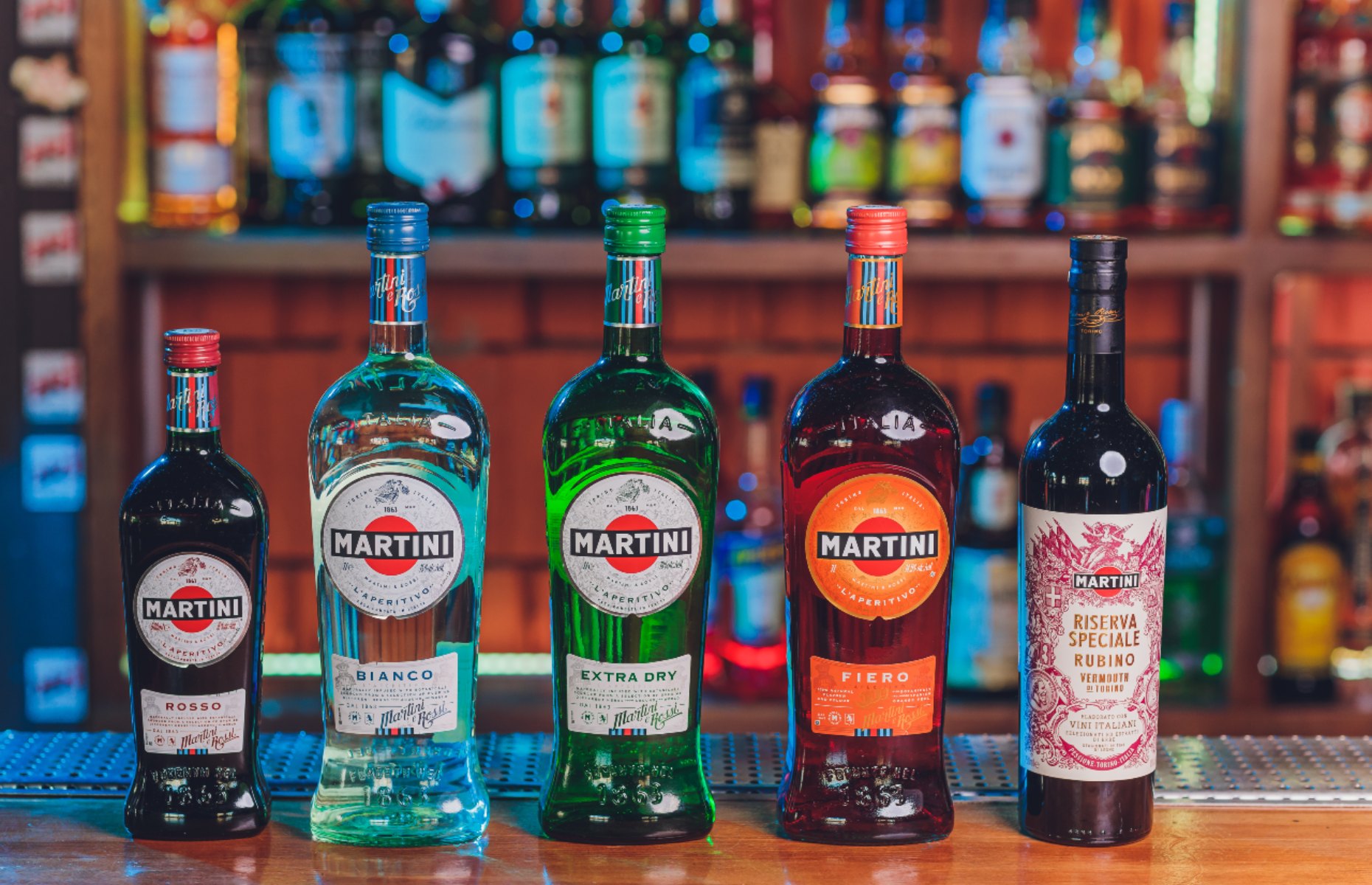 Vershinin89/Shutterstock
Vershinin89/Shutterstock
Martini Rosso
The Martini Rosso was Luigi Rossi’s first creation. A deep crimson vermouth, it’s made from a secret blend of herbs and botanicals, some of which include sage, dittany and savory. It has a bittersweet taste with hints of orange and can be drunk as an aperitif when mixed with tonic water, ice and a slice of orange.
Martini Bianco Vermouth
The white version of Rossi’s vermouth came later and again contains and unique blend of botanicals with strong notes of vanilla flowers and white grapes. Like the Rosso, it can be drunk mixed with tonic water and ice and is best served with a garnish of lime.
Martini Extra Dry Vermouth
This white vermouth was introduced on New Year’s Day in 1900 and soon became an integral part of one of the 20th century’s most famous cocktail, the Dry Martini. It’s made from a blend of herbs, rare woods, citrus and raspberry extracts. It also has a tart flavour of Florentine orris roots.
Martini Rosato Vermouth
The Martini Rosato was created after Rossi’s death, but was inspired by notes in his journals. It’s a pink-hued spiced vermouth containing Madagascan cloves and Sri Lankan cinnamon. This too can be drunk with an equal measure of tonic water and garnished with a slice of grapefruit.
Martini Riserva Speciale
The reserve vermouths comes in three varieties – the Ambrato, the Rubino and the Bitter and are more modern versions based Martini and Rossi’s original 150-year old recipes. The Ambrato is amber in colour and is created from a blend of moscato bianco grapes and rate botanicals, while the Rubino is a ruby colour and has a rich flavour with notes of sandalwood and artemisia. The Bitter version was inspired by the original recipe from 1872 and contains a mix of saffron, angostura and calumba.
Martini sparkling wines and what to pair them with
Martini may be better known for its vermouths, but it has always produced excellent sparkling wines too. Many of the grapes are grown within the Asti region, surrounding the village of Pessione, where all the bottles are still made and come from around 300 small producers.
 Anastasiia Chepinska/Shutterstock
Anastasiia Chepinska/Shutterstock
Martini Asti
Made with moscato bianco grapes, which grow in the sunny hills of the Piedmont region, the Asti is a sweet white sparkling wine with notes of peach and wild sage and after tones of fresh pineapple and pear. It’s best served on the rocks and drunk as an aperitif or to accompany dessert. The Asti Ice is a refreshing version of the wine, best drunk in summer on ice.
Rosé Extra Dry and Demi-Sec
A salmon pink sparkling wine, the Martini rosé extra dry features notes of red berries and wild rose with a touch of black pepper. It’s best paired with seafood, such as prawn linguini or smoked salmon. The demi-sec, on the other hand, is a softer and slightly sweeter wine with hints of fresh strawberry and orange. It’s perfect when paired with seafood such as prawns, lobster or other Mediterranean dishes.
Prosecco
Martini’s prosecco is made with Glera grapes grown in the Veneto region and blended with chardonnay and pinot noir, but its vintage bottles are made with 100 percent Glera grapes. They’re best served on the rocks and paired with cured meats or grilled fish.
Martini Dolce 0.0%
The label has also launched the Martini Dolce 0.0%, a natural non-alcoholic sparkling wine with a sweet and delicate fruity taste and hints of apples and pears.
READ MORE: 25 great cocktails with sparkling wine
What can I make with Martini vermouths and sparkling wines?
Today, Martini’s products can be found in many of the world’s most popular cocktails, from negronis to Manhattans. They can even be drunk just mixed with tonic on the rocks, as an aperitif before dinner. Their sparkling wines and prosecco also make for the perfect accompaniment for special occasions. Here are some recipes for Martini vermouth-based cocktails.
Gin Martini
One part Martini Extra Dry to three parts Bombay Sapphire Gin, ice cubes and lemon peel or an olive to garnish.
Negroni
Equal measures of Martini Riserva Speciale Rubino, Martini Riserva Speciale Bitter and Bombay Sapphire Gin, served with ice cubes and a slice of orange to garnish.
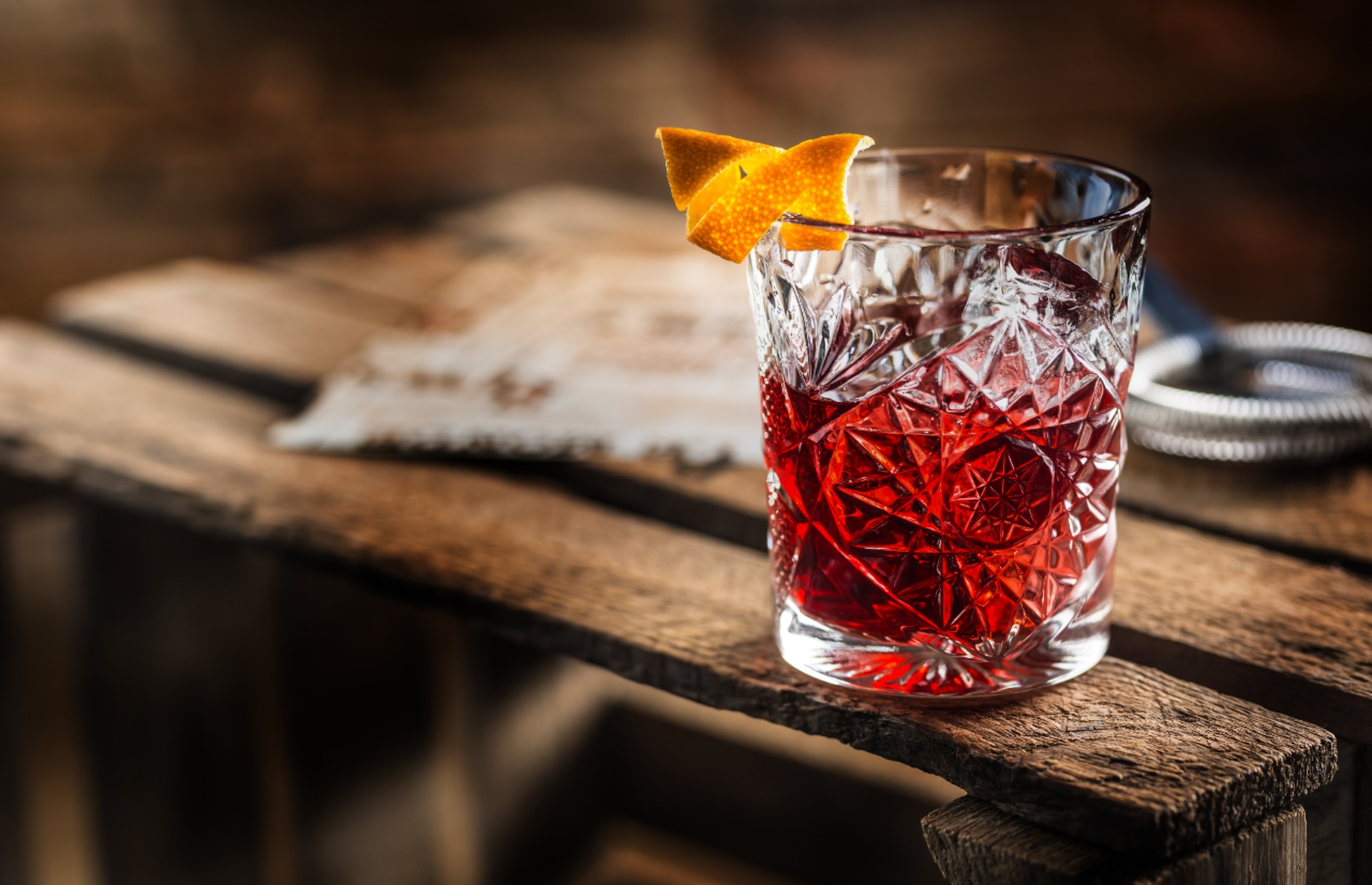 Marian Weyo/Shutterstock
Marian Weyo/Shutterstock
Americano
Part Martini Riserva Speciale Rubino and part Martini Riserva Speciale Bitter, mixed with soda water, ice cubes and a slice of lemon to garnish.
Manhattan
One part Martini Riserva Speciale Rubino to two parts rye whiskey and a dash of maraschino liqueur. Serve with ice cubes and a cherry to garnish.
Sbagliato Ambrato
Equal measures of Martini Riserva Speciale Ambrato and Martini Riserva Speciale Bitter, mixed with Martini prosecco to taste. Serve with ice cubes and a slice of orange.
READ MORE: The best three-ingredient cocktails
Where can I find Martini products?
Bars throughout the world stock Martini drinks, but if you want to try making cocktails and aperitifs at home, you'll find that most Martini sparkling wines and vermouths can be found in Asda and can also be delivered online from Ocado. The Martini Asti is also available at Morrisons.
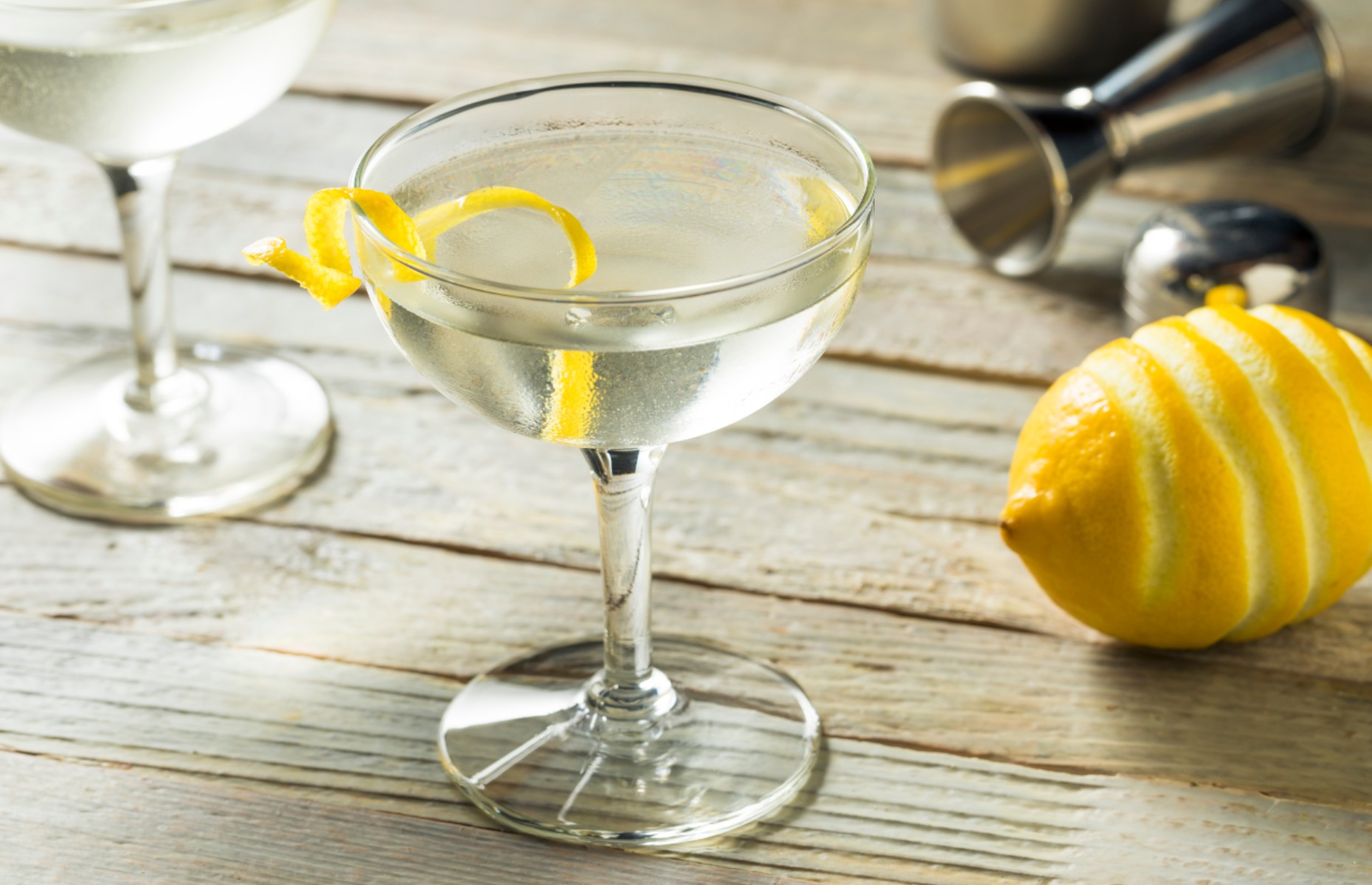 Brent Hofacker/Shutterstock
Brent Hofacker/Shutterstock
Where can I learn more about Martini?
If you’re a true Martini fan, head to the small village of Pessione, just outside Turin, where you’ll find the Casa Martini. This is where founder Luigi Rossi used to live and today features all the fermentation plants, cellars and bottling lines.
There’s also a Martini brand museum, where you can learn all about its history, a tasting room, and a small wine museum, detailing the ancient history of the drink.
Main image: Y.Gq_photo/Shutterstock
Most Recent
Comments
Be the first to comment
Do you want to comment on this article? You need to be signed in for this feature
